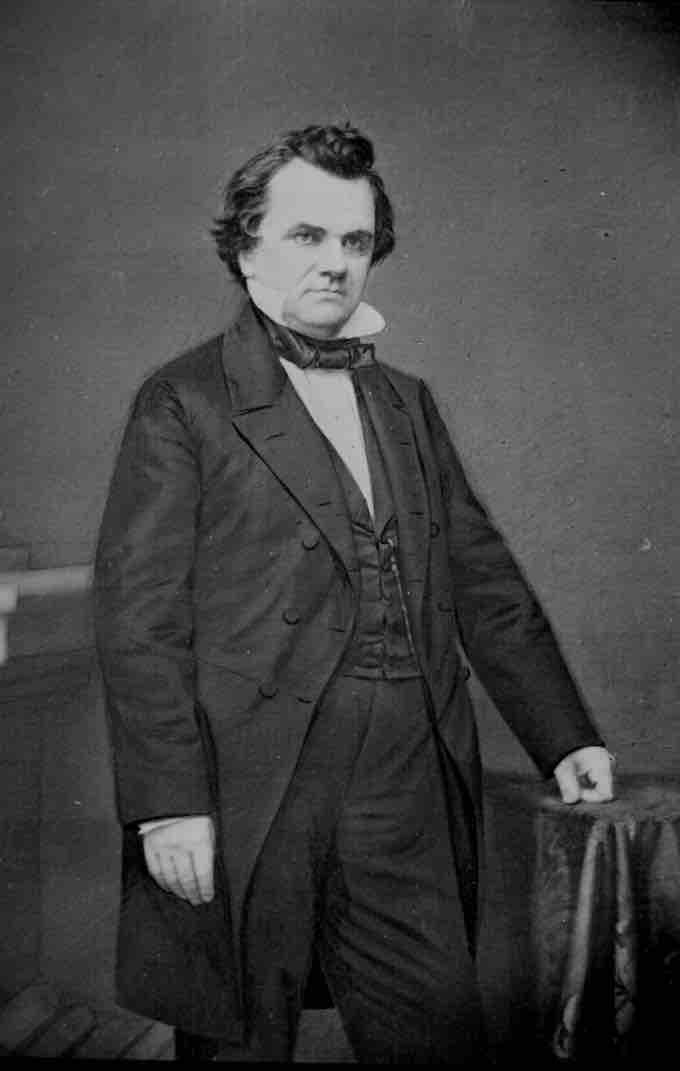In 1857, settlers in Kansas were faced with voting on a constitution that outlined a government for the territory. The Lecompton Constitution was the second of four proposed constitutions for the state of Kansas. It was produced in September 1857 by the territorial legislature, which consisted mostly of slaveowners in response to the antislavery position of the 1855 Topeka Constitution drafted by the Free-Soil faction. Free-state supporters, who comprised a large majority of actual settlers, boycotted the vote. The resulting Lecompton Constitution secured the continuation of slavery in the proposed state and protected the rights of slaveholders.
Both the Topeka and Lecompton Constitutions were placed before the people of the Kansas Territory for a vote, and both votes were boycotted by supporters of the opposing faction. In the case of Lecompton, however, the constitution was defeated by several thousand votes, demonstrating that the majority of Kansas settlers did not want slavery to continue as an institution within the state. Nevertheless, both the Lecompton and Topeka Constitutions were sent to Washington for approval.
Meanwhile, despite the controversial Dred Scott decision, Stephen Douglas and many other Northern Democrats continued their support of popular sovereignty as the final authority on the admission of slavery into new territories, while Republicans denounced any measure that would allow for the expansion of slavery. President Buchanan, however, formally endorsed the Lecompton Constitution before Congress, joining with the Southern Democrats who demanded that the document be adopted as the Kansas state constitution. While the president received the support of the Southern Democrats, Northern Democrats and Republicans denounced the blatant violation of the will of the popular majority in Kansas.
In 1858, in an effort to win Northern support for the popular sovereignty argument, Douglas entered into a series of debates with Abraham Lincoln who was challenging him for the Illinois congressional seat. Douglas argued that, while the Dred Scott case prohibited Congress from legislating on the expansion of slavery, citizens in the territories could effectively legislate against it via their own local governance or by refusing to reinforce infrastructure protecting slaveowners' interests within the territory. This argument, which became known as the Freeport Doctrine, alienated many Southerners from the Northern Democrats permanently. Furthermore, Douglas's appeal to the North convinced many Southerners that their interests and proslavery rights only could be protected by secession.

Stephen Douglas
Stephen A. Douglas broke with the Democratic Party leadership over the Lecompton Constitution.